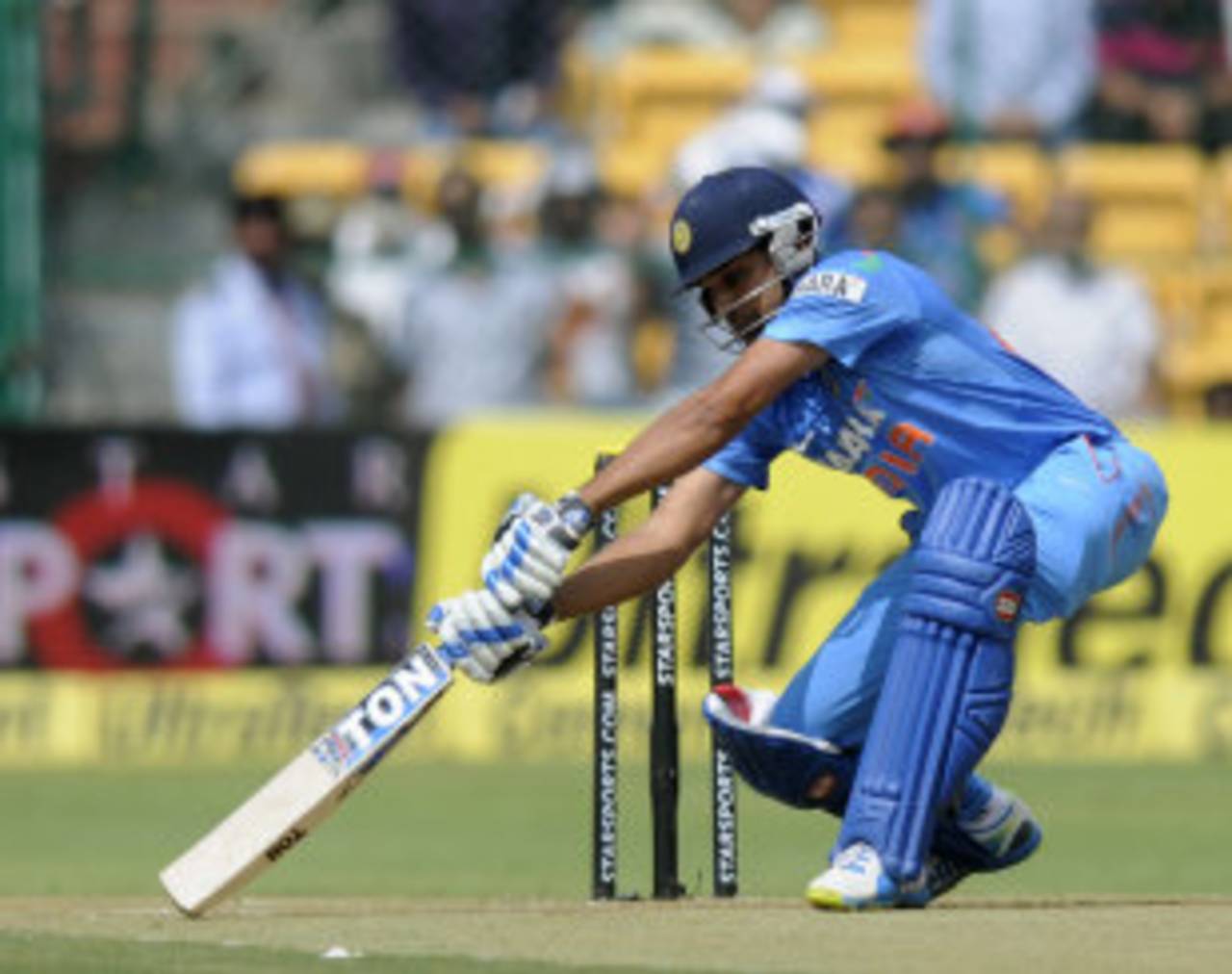Thirty-six balls, 115 runs
Stats highlights from an incredible one-day international in Bangalore
S Rajesh
02-Nov-2013

Rohit Sharma's last 59 runs came off just 18 balls • BCCI
- Rohit Sharma's 209, off 158 balls with 12 fours and 16 sixes, is the slowest of the three double-centuries in one-day internationals. Virender Sehwag's 219 came off 149 balls (strike rate 146.97), while Sachin Tendulkar's unbeaten 200 was off 147 (136.05). Rohit's strike rate was 132.27.
| Runs | Balls | Dots | 1s/2s/3s | 4s | 6s |
| First 50 | 71 | 39 | 24/4/0 | 3 | 1 |
| Second 50 | 43 | 22 | 13/2/0 | 1 | 5 |
| Third 50 | 26 | 9 | 7/2/0 | 5 | 3 |
| 151 onwards | 18 | 4 | 3/1/0 | 3 | 7 |
| Total (209) | 158 | 74 | 47/9/0 | 12 | 16 |
| Bowler | Balls | Runs | Run rate | Dots | 4s/ 6s |
| Xavier Doherty | 34 | 57 | 10.05 | 11 | 2/ 5 |
| Clint McKay | 28 | 48 | 10.28 | 11 | 2/ 5 |
| James Faulkner | 42 | 46 | 6.57 | 23 | 4/ 2 |
| Nathan Coulter-Nile | 28 | 32 | 6.85 | 14 | 4/ 1 |
| Glenn Maxwell | 11 | 22 | 12.00 | 4 | 0/ 3 |
| Shane Watson | 10 | 3 | 1.80 | 7 | 0/ 0 |
| Aaron Finch | 5 | 1 | 1.20 | 4 | 0/ 0 |
S Rajesh is stats editor of ESPNcricinfo. Follow him on Twitter